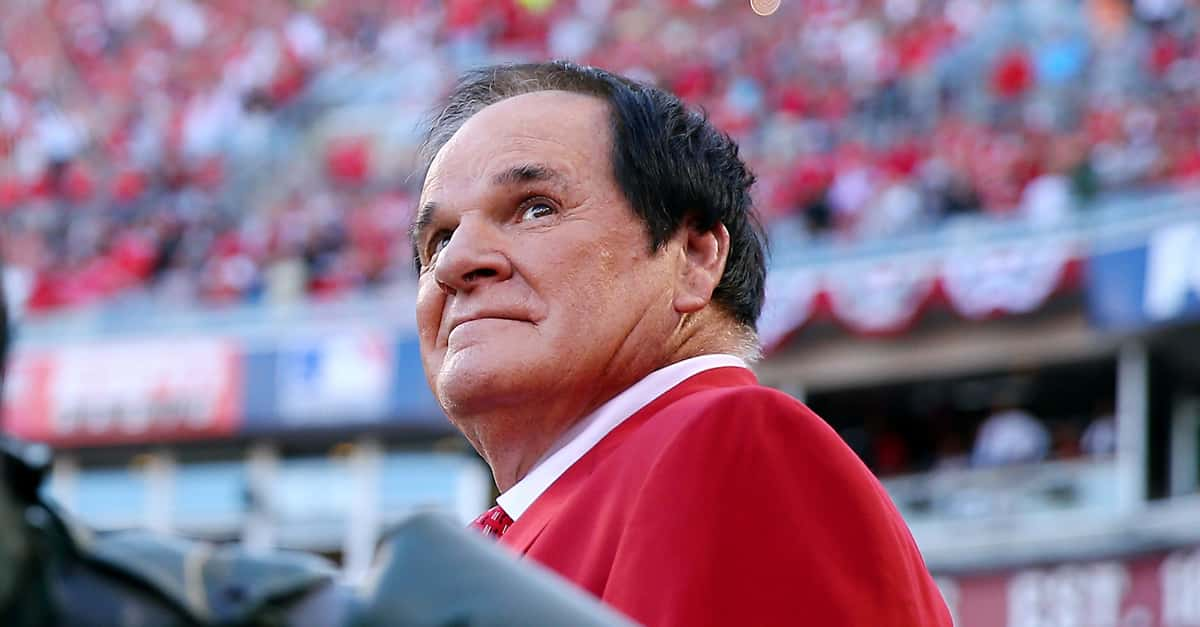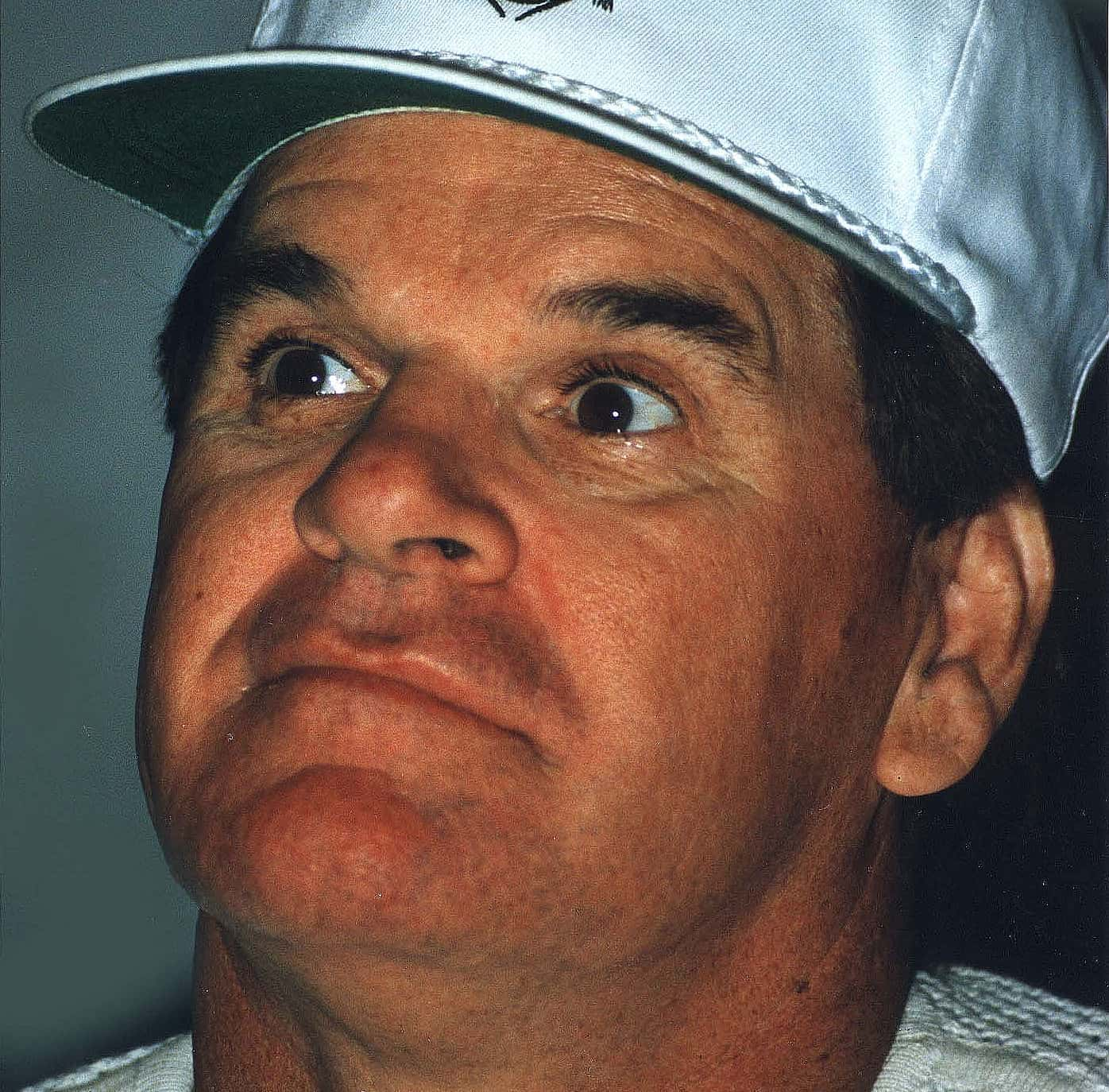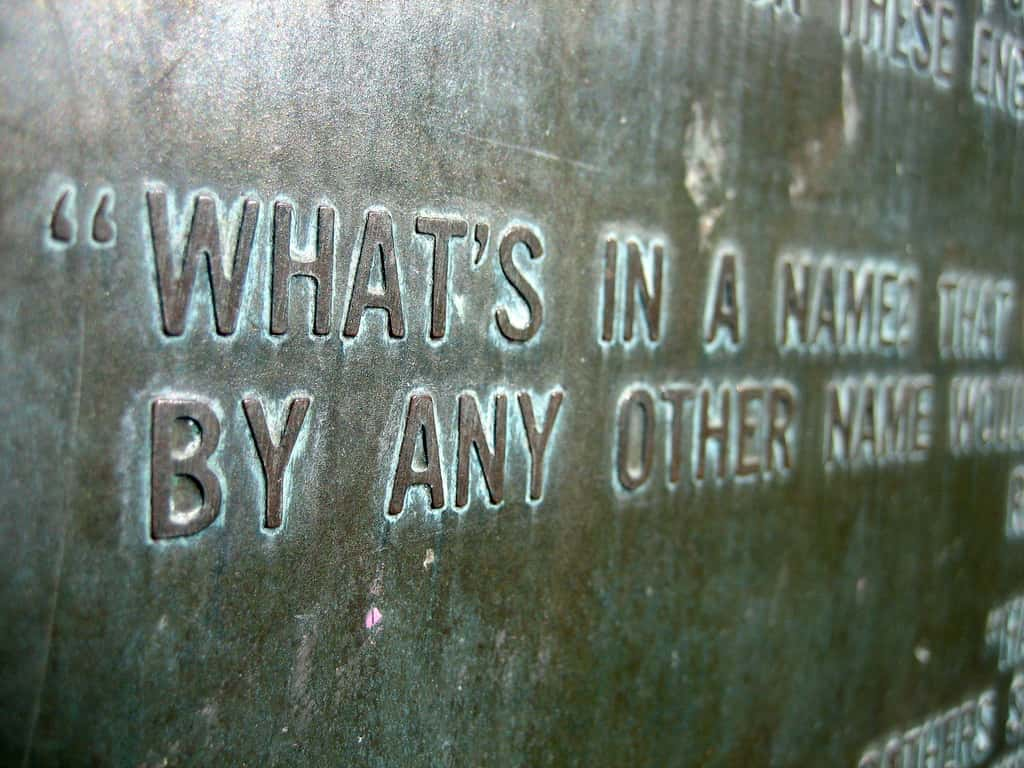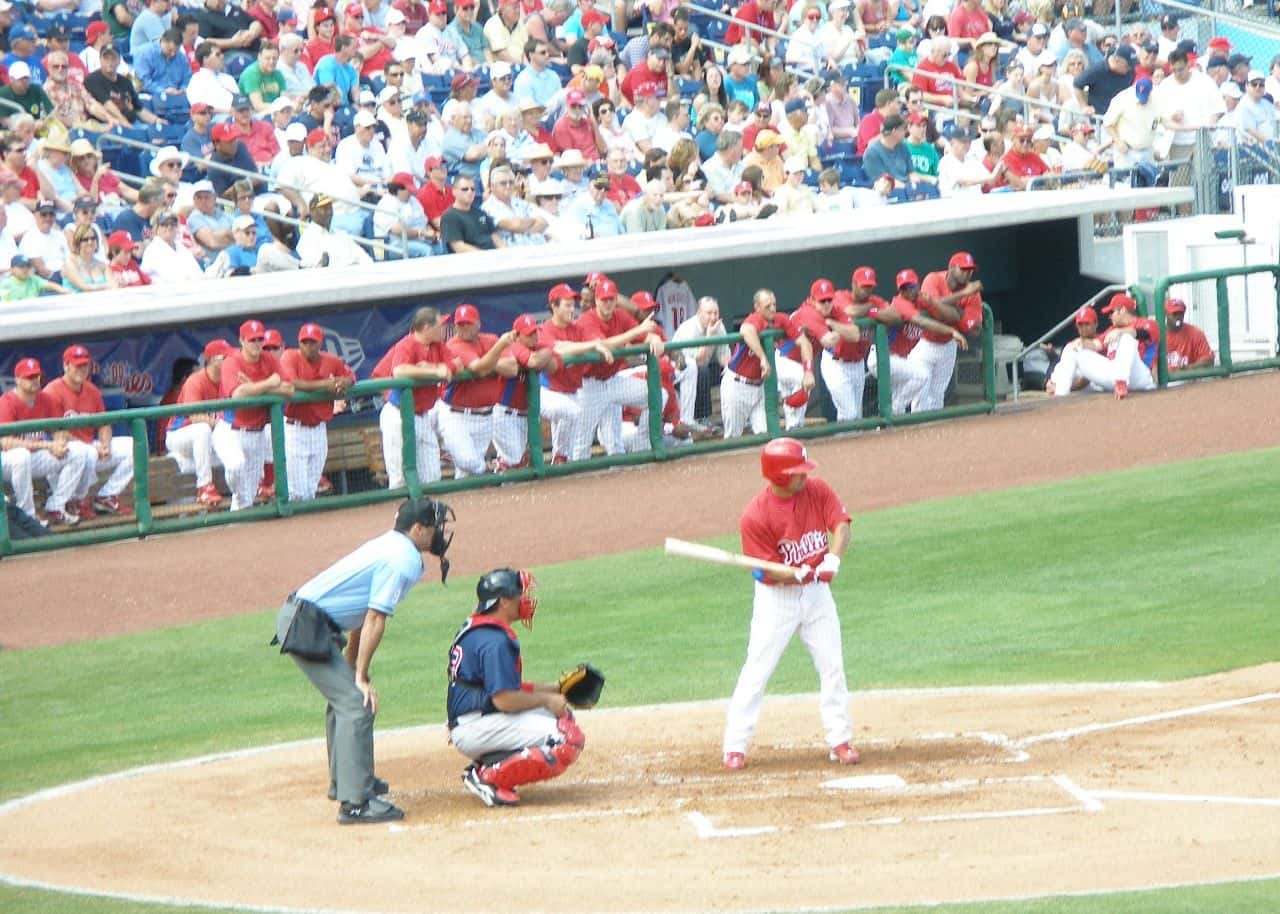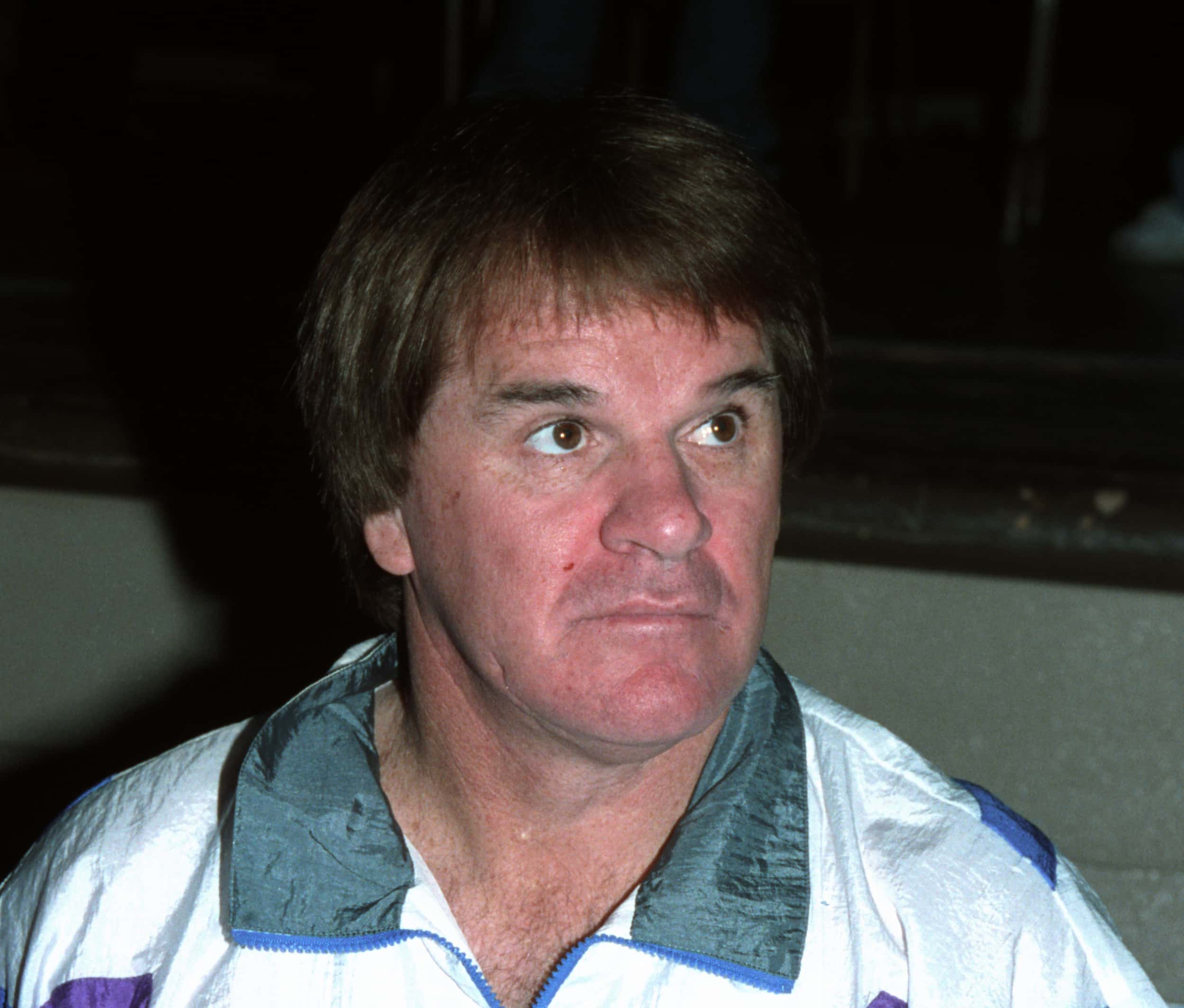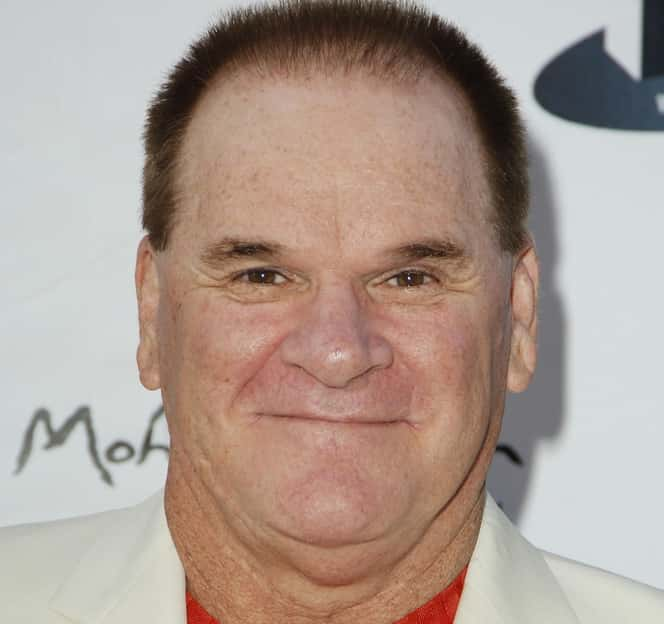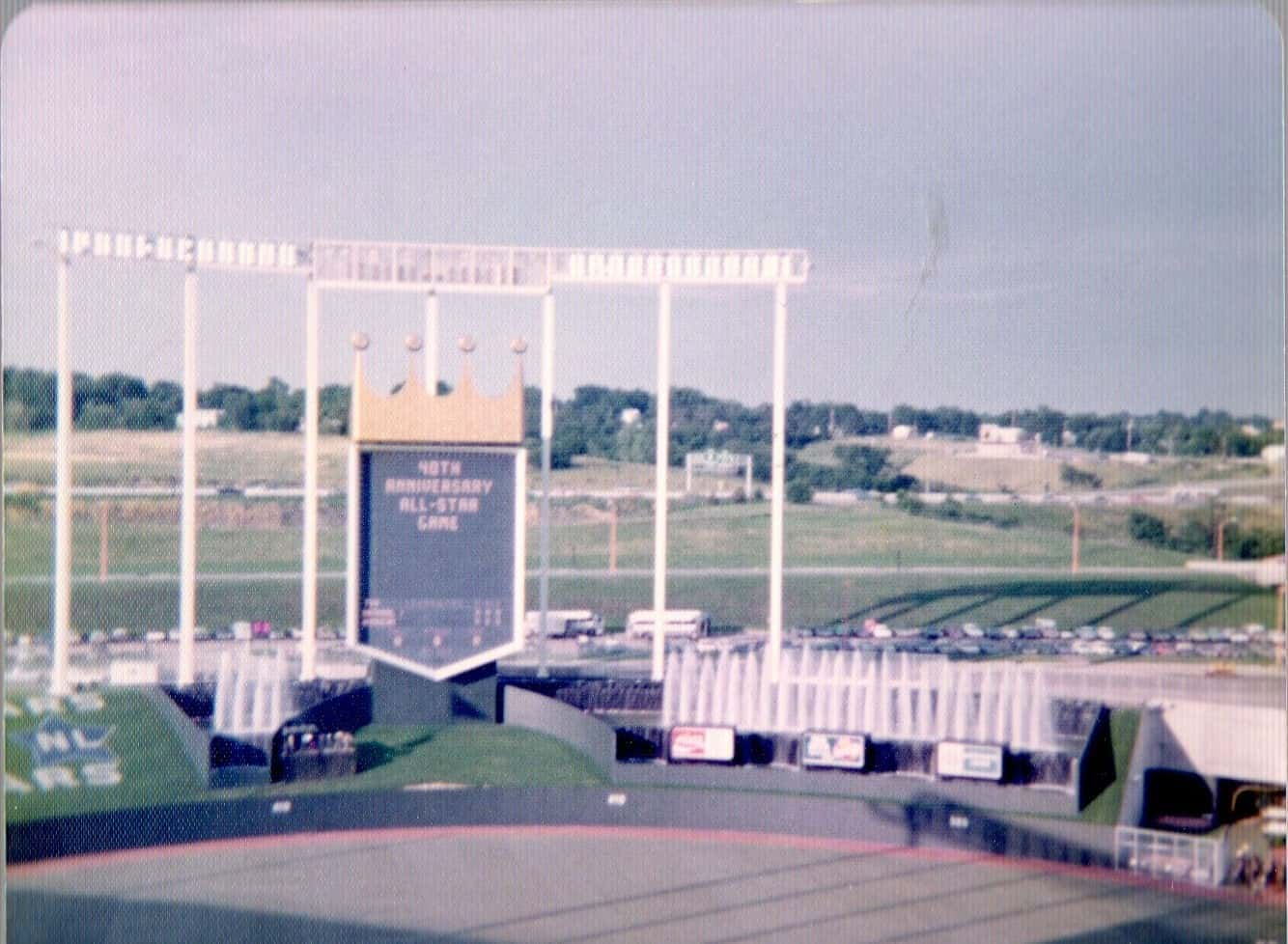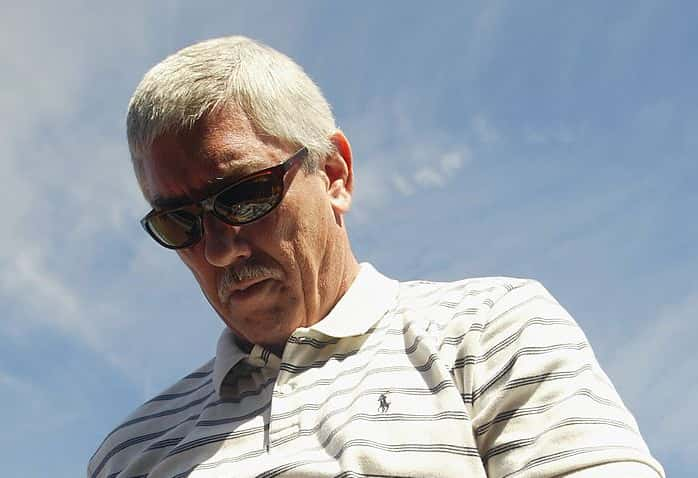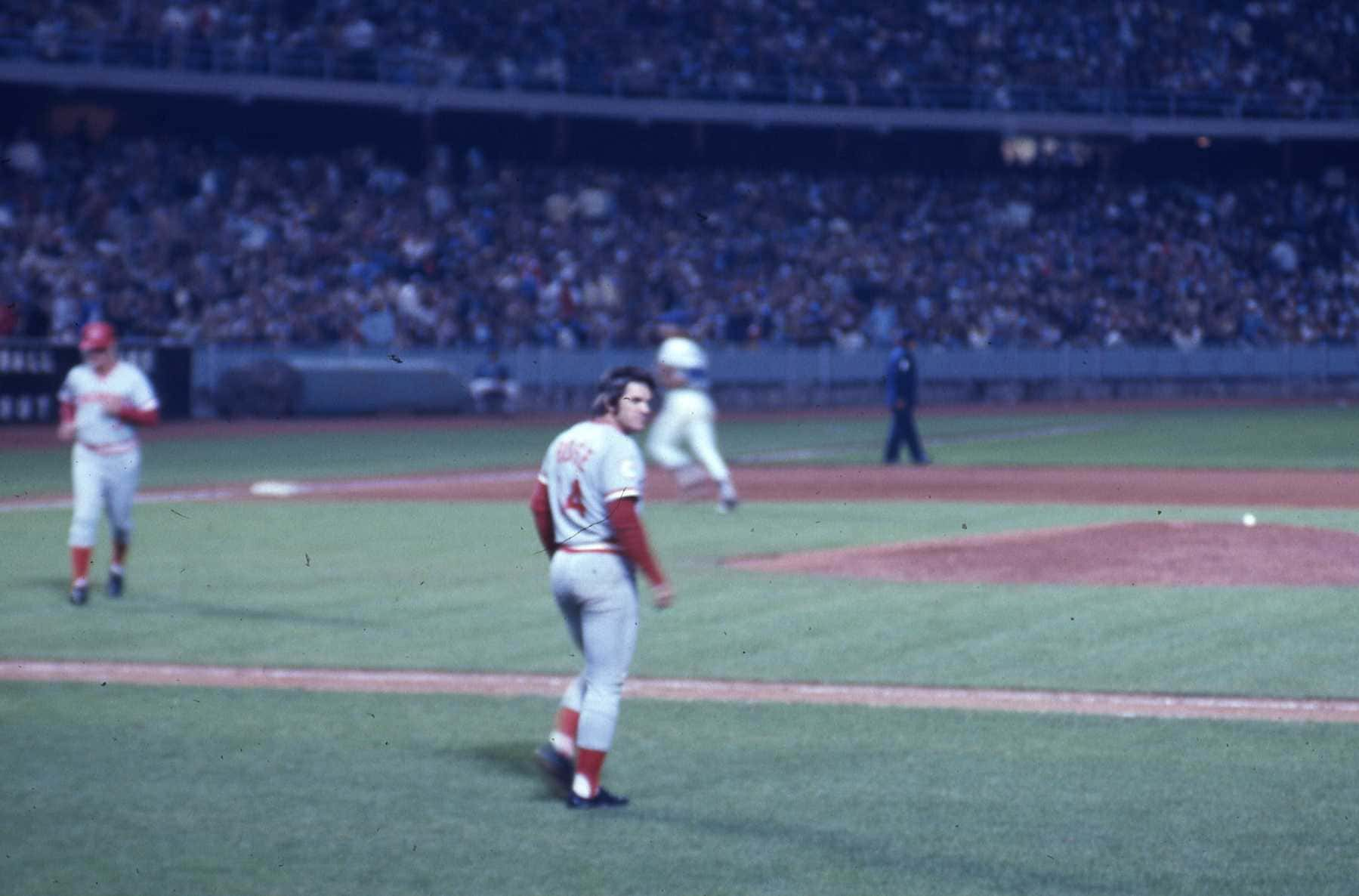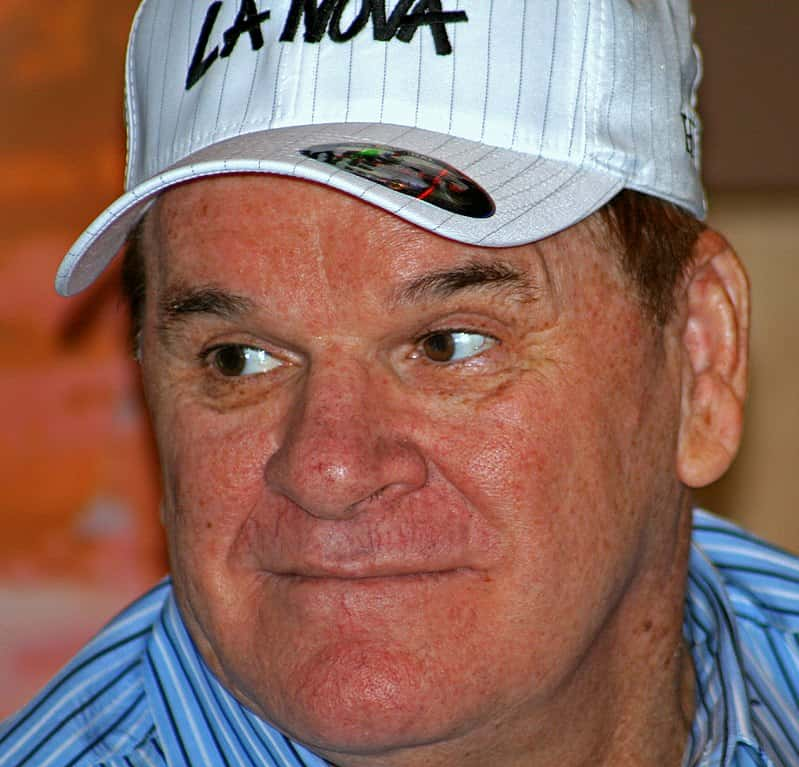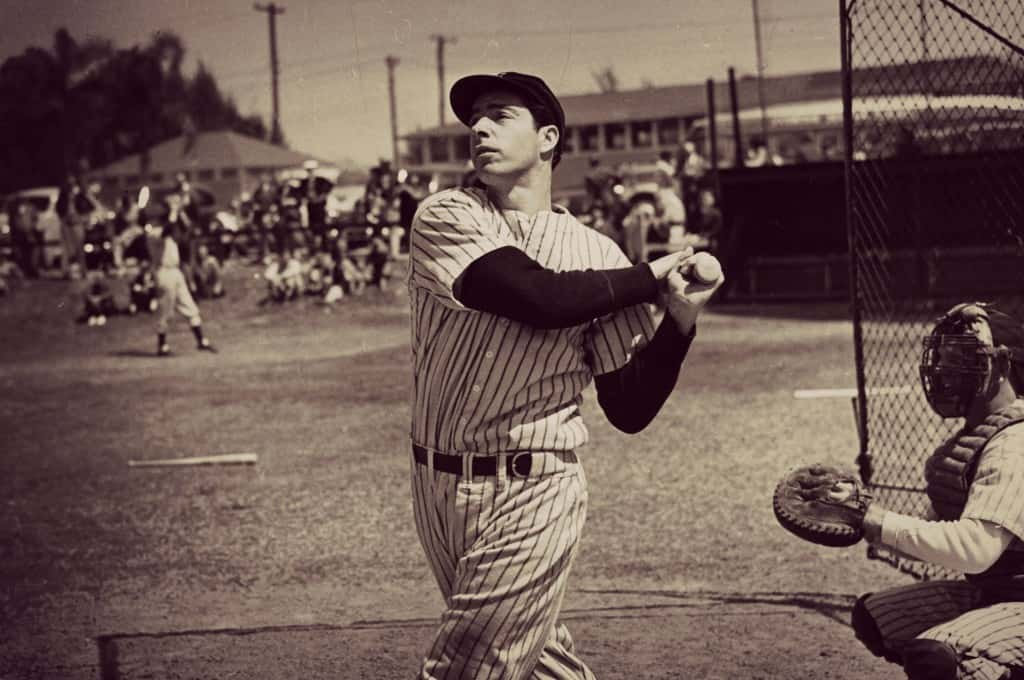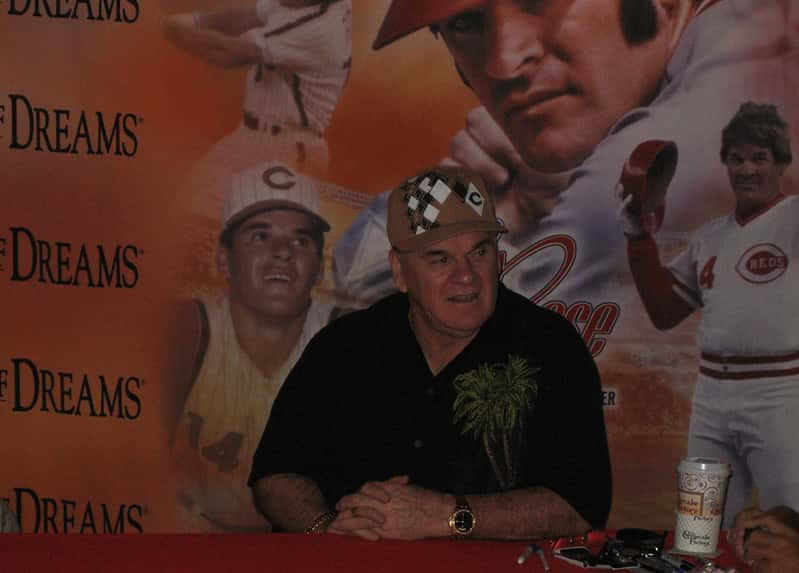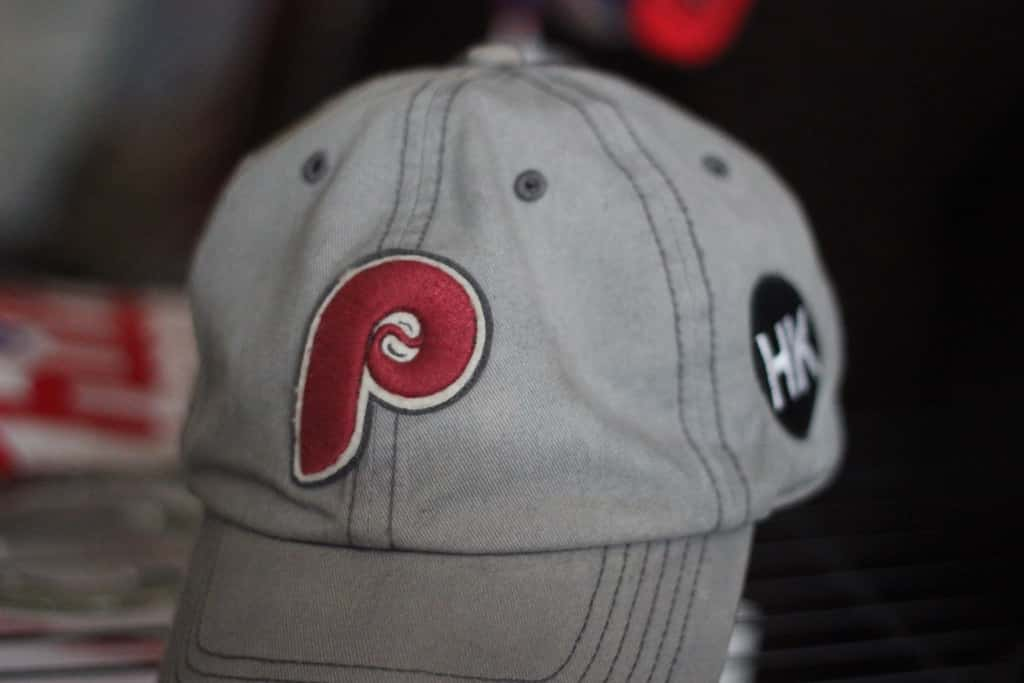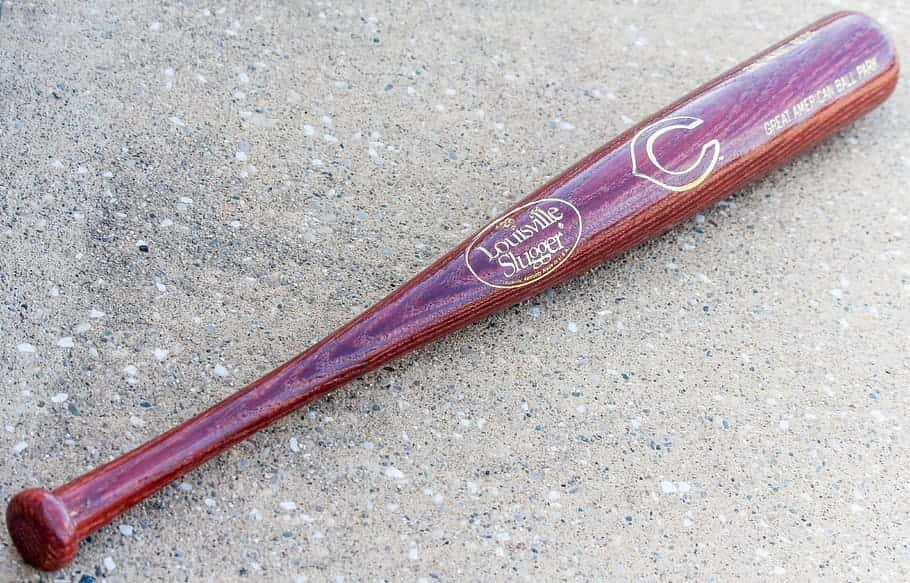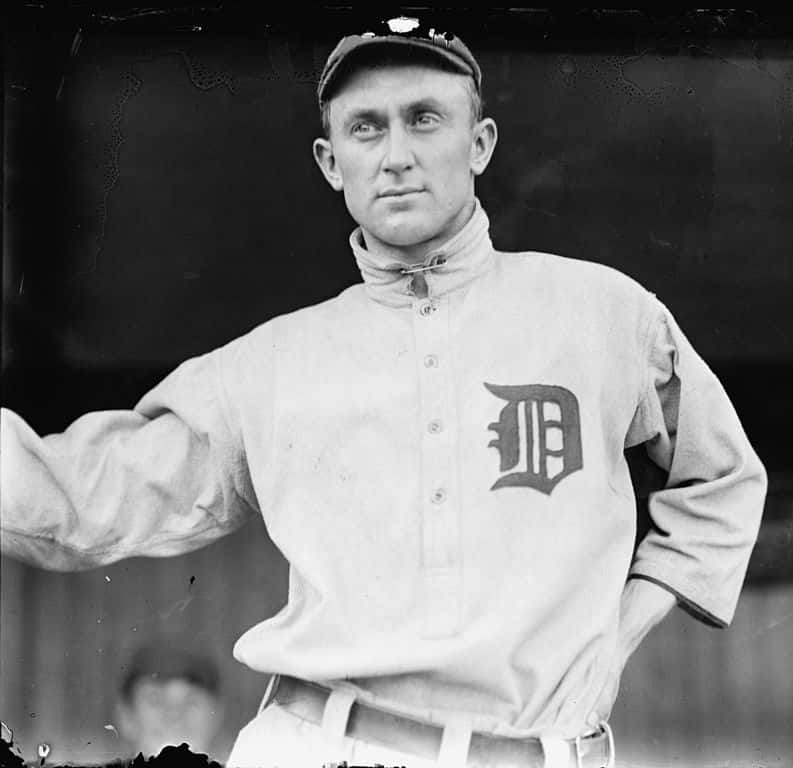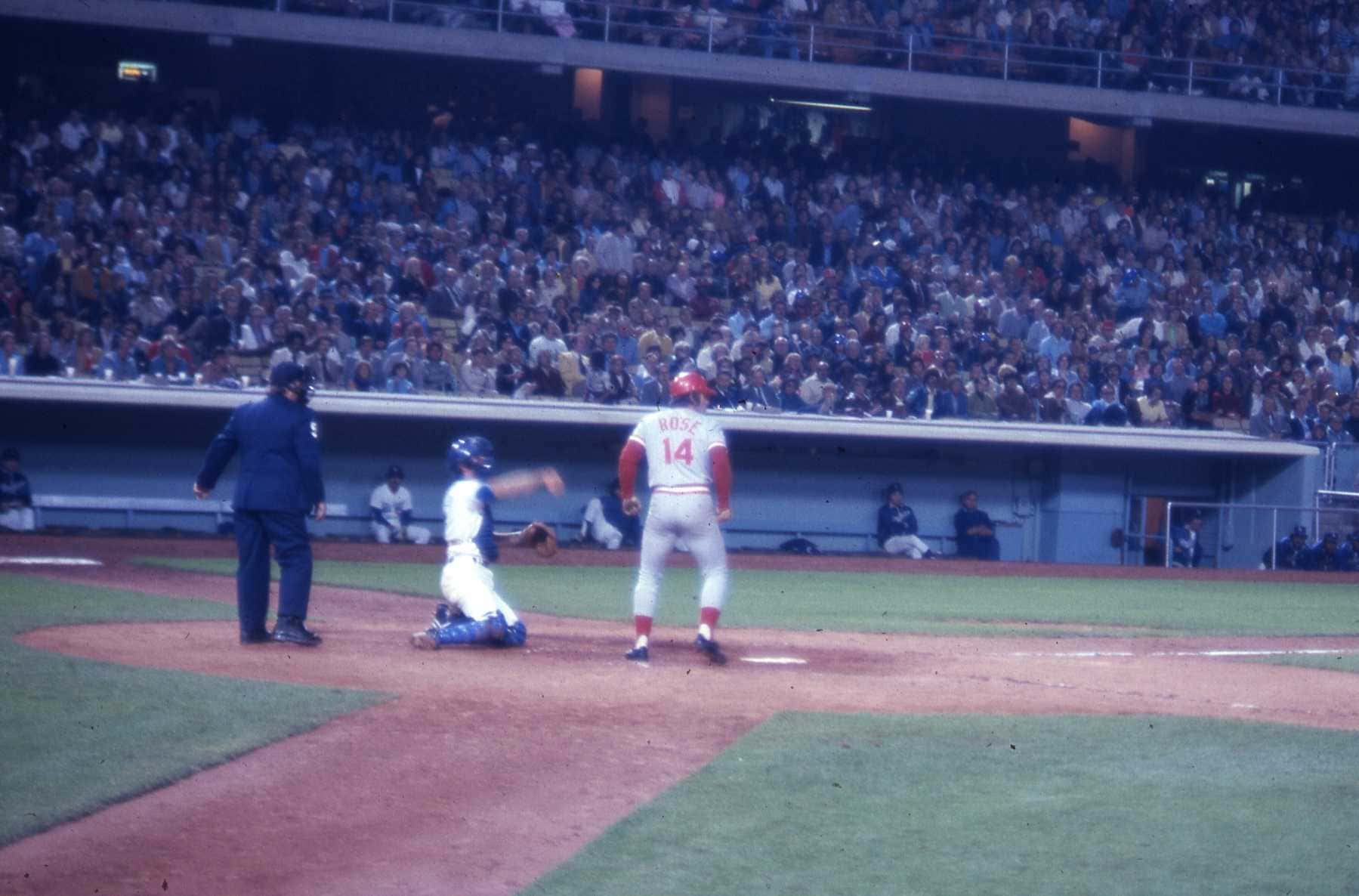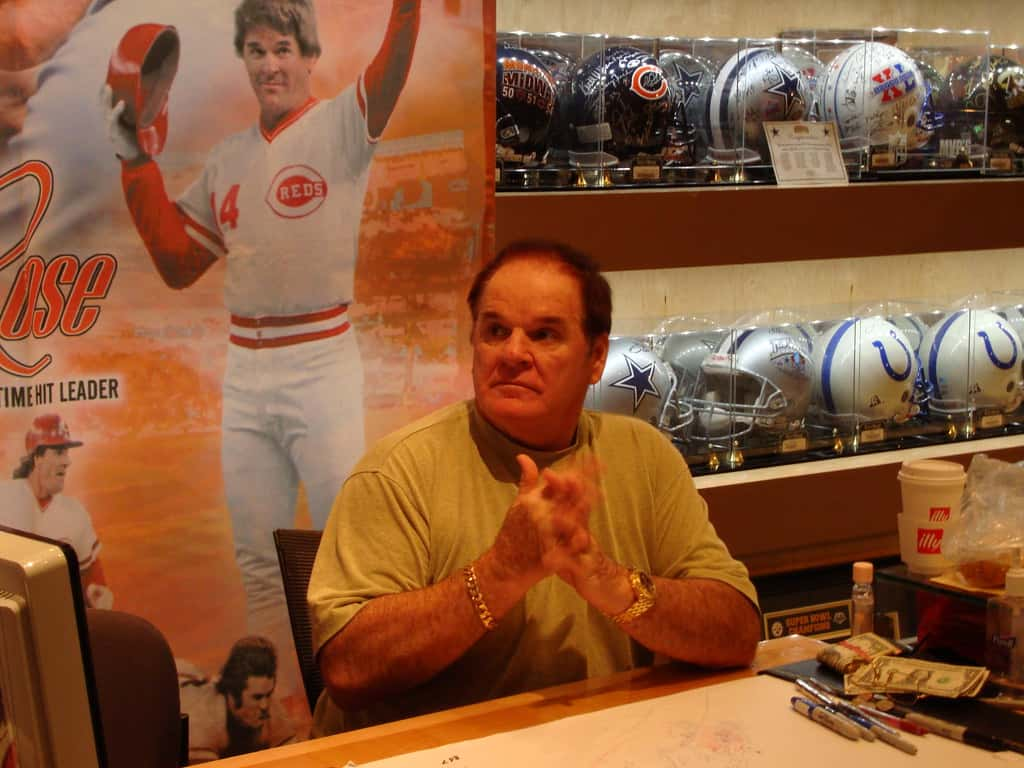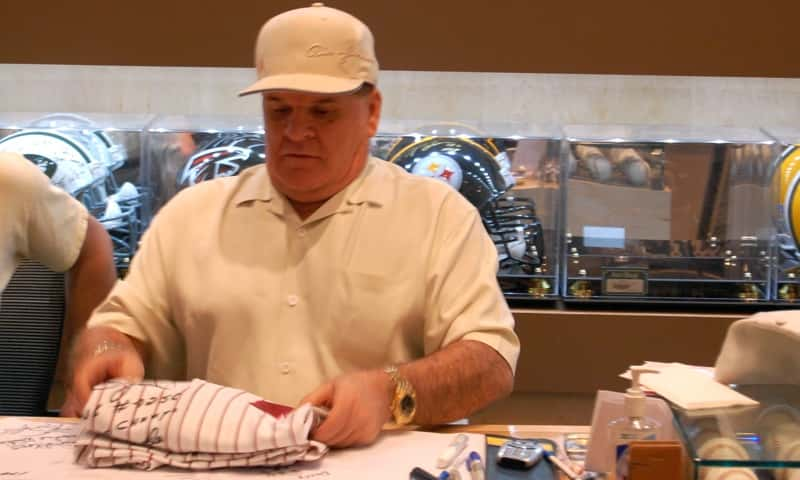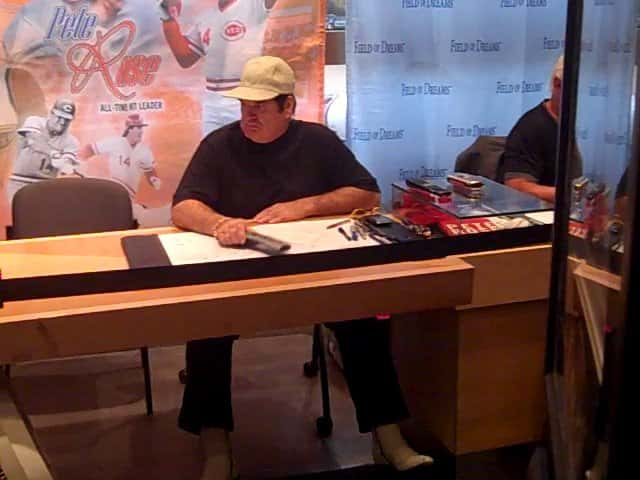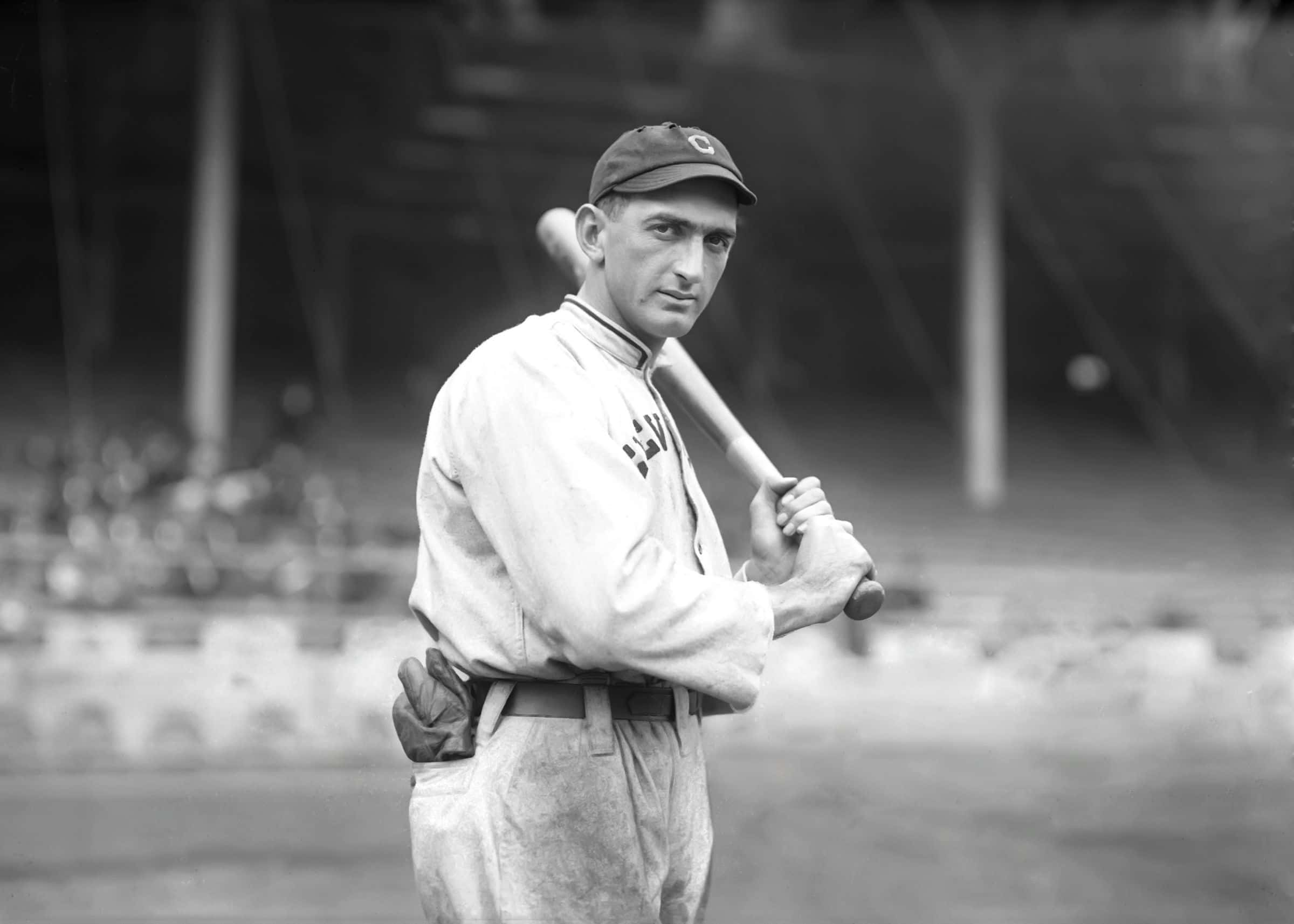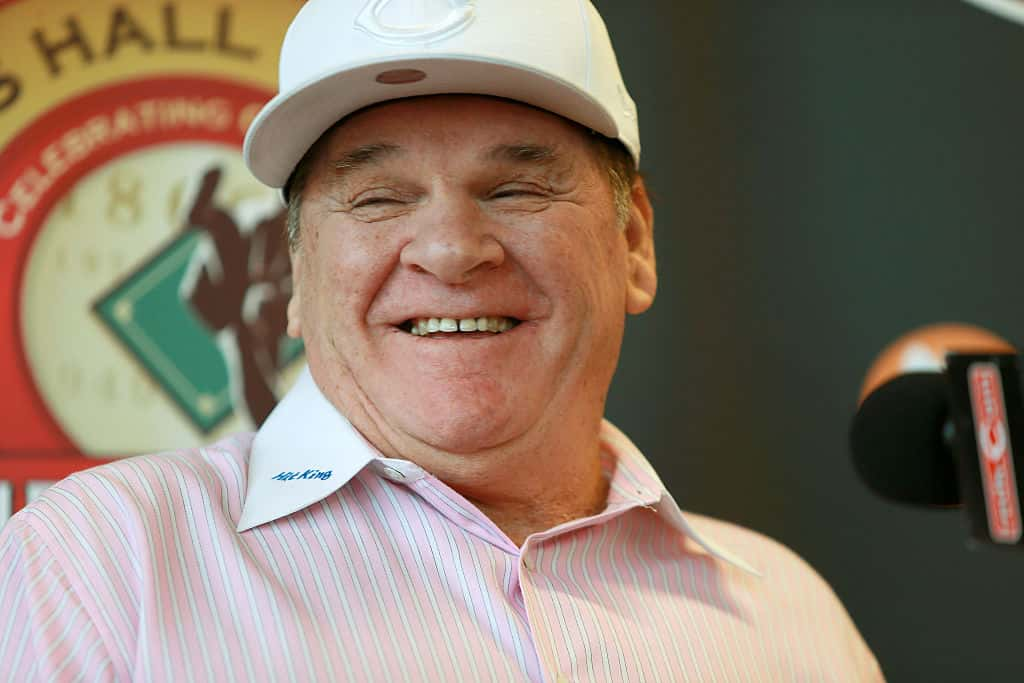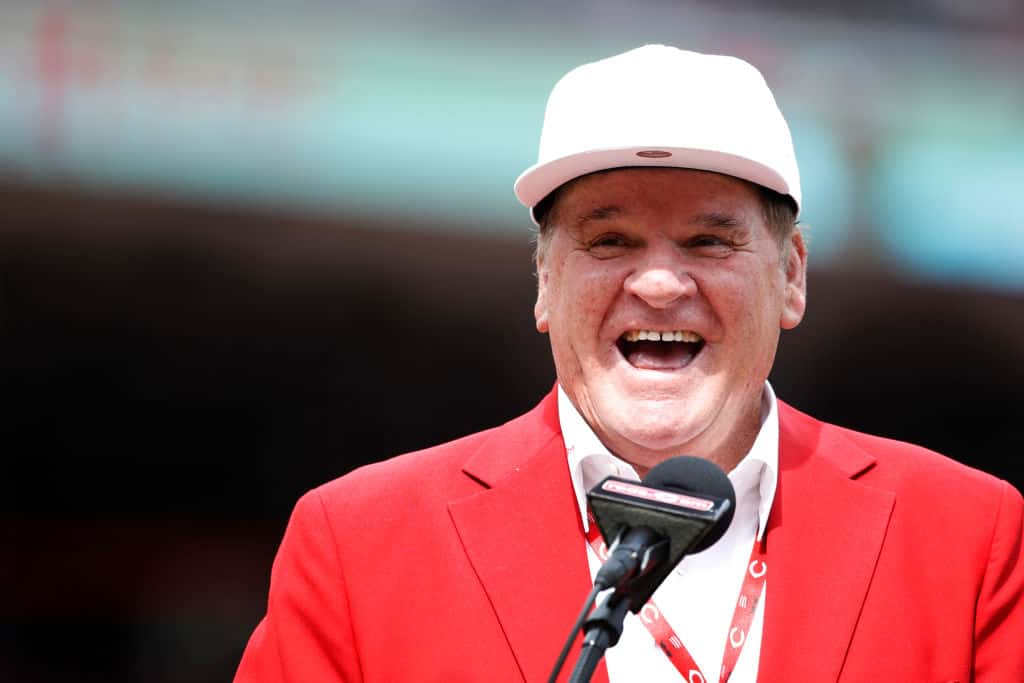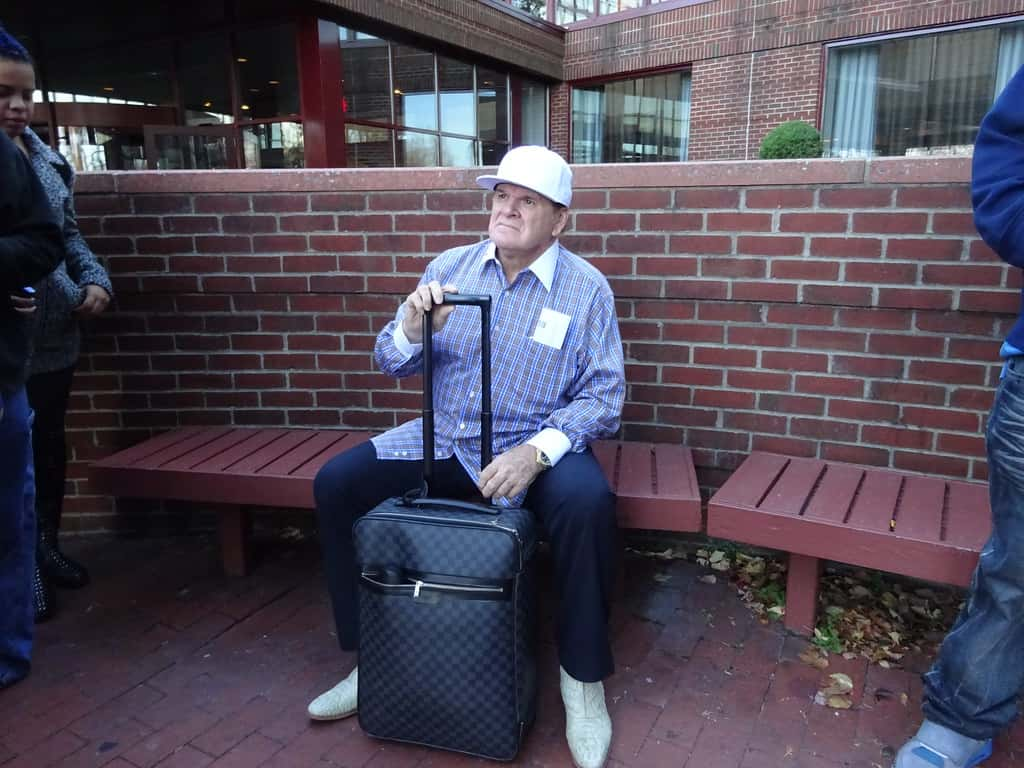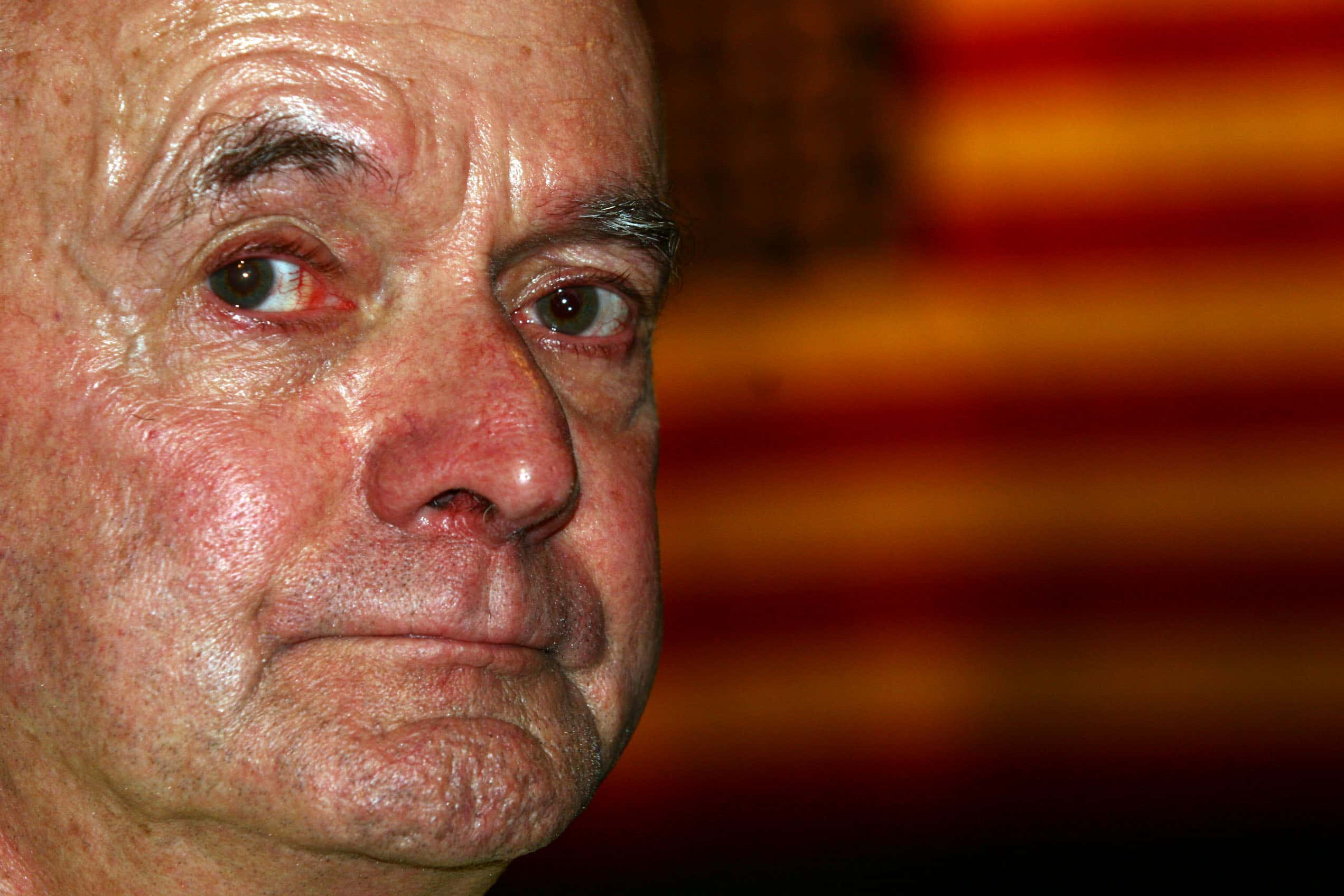Nicknamed “Charlie Hustle” and the “Hit King,” Pete Rose made history with an unparalleled passion for the baseball and an aggressive style of play that took him all the way to the top of the record books. Unfortunately for him, the story didn’t end there. As legendary and unique as he was on the field, constant scandal and controversy have marked his life off the field. And, of course, for more than a quarter of a century, this cultural icon has been at the core of one of the sport’s darkest episodes.
With the good, the bad, and the ugly all included, here are 50 hustling facts about Pete Rose.
1. Like Father, Like Son
Pete Rose was born in Cincinnati in 1941, the firstborn son of a very ambitious young man named Harry. Harry was a former amateur athlete, sports commentator, and banker. Always competitive, he dreamed of seeing his offspring develop the same intense drive for success that he always had. And when we say “intense drive,” we aren’t exaggerating. Harry once broke his hip in the middle of a football game...and still kept running until he finished a tackle!
2. On the Edge of His Seat
Harry Rose’s all-out attitude was so extreme that it sometimes carried over into his life off the field. For example, while explaining how to properly carry out a football tackle during an appearance on a sports show one week, Harry pounced with full force onto a wooden chair to visually demonstrate what he was trying to explain.
He tackled the chair so hard, it shattered to pieces—leaving the host (and probably a few viewers) in a state of utter shock. That’s the man young Pete Rose idolized. It’s no surprise that Rose would one day epitomize the concept of an athlete who will do anything to win.
3. Never Lose Focus
Rose always grew up with the clear understanding that his dad expected him to give everything he had to become a great baseball player. He couldn’t even go to the movies. Harry didn't want anything to distract from his son’s athletic work ethic; he insisted that Pete use that time to hone his baseball skills instead.
4. In Good Company
As a child, Rose was a member of the Order of DeMolay, a Boy Scouts-esque youth wing of the famous, centuries-old fraternal organization known as the Freemasons. We know how much conspiracy theorists love claiming that this organization secretly runs the world and determines who becomes successful, so here’s some fun fuel for their argument: Some of Rose’s frat brothers in this group included names like animation legend Walt Disney, President Bill Clinton, Hollywood legend John Wayne, and pop-culture icon Mel Blanc (the voice of Bugs Bunny, Daffy Duck, Porky Pig, and many others).
5. All Work and No Play Makes Pete a Dull Boy
Growing up wasn't always easy for Rose. When he didn’t make his high school’s varsity football team in tenth grade, he sunk into a deep depression—and his grades suffered. His schoolwork was so poor that his teachers insisted he go to summer school to make up for them. But Harry Rose had other ideas.
Harry wasn’t about to let something as silly as school make his son miss a full summer of baseball. Instead, he was fine with having little Pete held back a year. Rose ended up graduating a year after his peers. Was it worth it? His teachers might not have thought so at the time, but baseball fans certainly would one day...
6. Which Side Are You On?
Some of us are born right-handed and some of us are born left-handed. However, what we all share is the inability to change the way we were born…or so we thought! In Rose’s case, despite having been born naturally right-handed, he made a conscious decision to become ambidextrous at the age of nine.
Why, you wonder? After learning that his uncle’s switch-hitting was a huge part of his success, Rose realized that becoming a switch-hitter could give him an advantage over his peers. His decision paid off big time. The star would go on to record roughly one-third of his big-league hits left-handed.
7. Family Ties
By all accounts, Rose’s baseball talent was nothing particularly impressive during his high school days. Luckily for him, he had two unique advantages that no one else around him did. He had his legendary and unmatchable drive...and an uncle who happened to work as a professional scout for a major league team!
It was this very uncle who used his position to arrange the opportunity for Rose’s first professional baseball contract. The deal was with his hometown team, the Cincinnati Reds—even though all the other pro scouts at the time had no interest in him. I guess this was the one time in history when nepotism ended up paying off!
8. His Big Break
The Reds primarily signed Rose as a favor to his uncle. They didn't initially have very high hopes for him as a player—they never even planned on playing him. That all changed one fateful day during spring training in 1963. When the team’s regular second baseman, Don Blasingame, suffered a groin injury during an exhibition game, they sent Rose in to take his place.
The future star took the field and definitely made the most of the surprise opportunity. Determined to finally show everyone what he was made of, Rose gave it his all and impressed the coaching staff enough to earn himself a spot on the team’s regular-season roster for the start of the 1963 season.
9. What’s in a Name?
For most of his adult life, Rose’s most popular nickname has always been “Charlie Hustle”—a reference to his inimitable all-out-at-all-times playing style. So just where did this nickname come from exactly? As it turns out, the moniker dates all the way back to the very beginning of the very first year of his professional career.
During another spring training game ahead of the 1963 season, Rose drew a walk during one of his plate appearances. Instead of casually making his way down to first base as most players do, he sprinted down the baseline as fast as he possibly could. Upon witnessing this odd display, legendary Yankees pitcher Whitey Ford jokingly referred to him as “Charlie Hustle.” Needless to say, the name stuck and the rest is history!

History's most fascinating stories and darkest secrets, delivered to your inbox daily.
10. Making Enemies
Rose’s transition to life in the big leagues was anything but smooth. Many perceived his unusual playing style and extreme attitude towards competing as arrogant. This often caused rifts between himself and his new teammates. On top of that, many of them were already upset that he had taken their friend Blasingame’s place on the team. Rose quickly found himself extremely unpopular inside the locker room.
11. Late Bloomer
When the 1963 regular season finally began, you would be forgiven for concluding after the first few games that the team had made a huge mistake by taking a chance on this kid. The future Hit King began his career by going 0 for 11 behind the plate. But a little patience can be worthwhile—Charlie Hustle’s rookie season remains an excellent example of that.
Despite starting off with that underwhelming drought, he quickly turned things around enough to become the National League’s Rookie of the Year for that season. Perseverance pays off, children!
12. Keeping His Day Job
While we tend to think of most athletes as spending their off-seasons just partying and relaxing, Rose wasn't like most athletes. Charlie Hustle spent his first offseason training to become a soldier in the US Army Reserves. After enlisting and training, he quickly became a platoon guide and was responsible for disciplining new recruits.
When baseball season came back around, he suddenly realized that he would need to keep two commitments simultaneously. So, he managed to arrange a compromise with the army. He would become their cook. On days he had to go in, he'd get all his grueling work done in the mornings and then head to the ballpark and back to his superstar lifestyle in the afternoons.
13. Spoiler Alert
During his sophomore year with the Reds, Rose made history in a very strange way. It was a scoreless game in the ninth inning and the opposing team’s pitcher had a no-hitter going when Rose came up to bat hoping to break it up. While he was unable to spoil the pitcher’s big day by recording a hit, he managed to find another way to do so.
Rose reached base via drawing a walk. Then, he managed to score on a fielding error. The play gave the Reds a 1-0 lead—even though they hadn't yet recorded a hit. When the inning ended, the score had not changed and, thanks to Rose, the Reds became the first team in baseball history to win a game in which the opposing pitcher threw a complete game no-hitter.
14. Pardon the Interruption
In 1968, Rose started off the season with a bang, putting together an impressive 22-game hit streak beginning on opening day. Unfortunately, he then broke his thumb and had to miss three weeks of the season. Nevertheless, he picked up right where he left off upon his return. Always one to persevere, he recorded an additional 19-game hit streak shortly after coming back.
15. Always Finding a Way to Win
Year after year, Rose’s greatness kept on growing. In 1969, he fought a fierce race for the batting title with one of the other greats of the era, Pittsburgh’s Roberto Clemente. As they both slugged their way through a season to remember, they found themselves tied on the leaderboard going into the last game of the season.
The two were still tied when Rose came to bat late in the season’s last game. On the spot, he came up with a brilliant plan to ensure the one final hit that would give him the narrow edge over his rival. Rose bunted, catching everyone off guard. This left him plenty of time to reach first base safely while the fielders scrambled to get to the ball. That little trick worked, and Rose beat out Clemente for the title by just one hit.
16. It All Came Crashing Down
There is probably no incident as famous or definitive of Rose’s career than the play that ended the 1970 All-Star game. Although the All-Star game doesn't actually count for anything and is traditionally a light-hearted affair for entertainment purposes only, Rose played just as hard as always. There were no lines he was unwilling to cross to try and win.
When trying to score the winning run before catcher Ray Fosse could tag him out, Rose dove headfirst into Fosse’s shoulder at full force. The force of the collision made Fosse drop the ball—Rose was safe. Though this move succeeded in winning the game for Rose’s team, it also had a terrible unintended consequence that would only be discovered after the fact...
17. Prognosis Negative
Shortly after the 1970 All-Star Game, doctors discovered that Rose’s tackle of Ray Fosse had actually accomplished a lot more than just winning the game. It turned out that Fosse had suffered a serious fracture and a separated shoulder as a result of the hit. Many people criticized Rose for being unnecessarily aggressive in a game that didn’t even count.
After having started off that season playing extremely well, Fosse began to struggle due to his weakened arm. He never fully recovered. He never again put up the same numbers that he had in the first half of 1970, had to miss a significant number of games from that point on, and continues to suffer from chronic shoulder pain to this day.

18. The Calm Before the Storm
Rose and Fosse have spent the past 50 years tied to each other in pop culture history over their mutual involvement in the devastating injury. Yet, their relationship was almost very different. The very evening before the infamous game, the two of them had met for the first time. They hung out together until the wee hours of the morning like old friends. Neither of them had any clue that the infamous slide would cut this new friendship would short.
19. Joining the Party
In the 1970s, the Reds team that had slowly been rebuilt around Rose became one of the most successful clubs in baseball history. With the addition of now-legendary players such as Johnny Bench, Tony Perez, and Joe Morgan, the team earned the nickname the “Big Red Machine.” They absolutely dominated the National League for the entire decade.
20. Wanna Fight About It?
In yet another example of Rose’s intense drive getting him into hot water, he aggressively slid into New York Mets’ second baseman Bud Harrelson during the 1973 National League Championship Series. Harrelson didn't take kindly to this move, and a fistfight instantly broke out between the two men. Things quickly got out of hand—the benches cleared and it turned into a full-blown brawl.
21. But What Really Happened?
Fans always assumed that the 1973 NLCS brawl between Rose and Harrelson was merely in response to Rose’s aggressive slide. However, it turns out that there actually may have been a bit more to the story than meets the eye. Harrelson himself has since admitted as much. So what exactly do I mean, you wonder?
Well, it turns out Harrelson ridiculed the Reds players' skills shortly before that game. As a result, he heard that they were plotting to take revenge on him somehow during the game. Then, when Rose came crashing into him at second base, he naturally assumed that this was his fear coming true. He immediately reacted before he could even think twice about it.
22. Duck and Cover
Rose became a pariah among New York fans after the aggressive slide that started the famous playoff brawl. In fact, a fan in the Shea Stadium stands once even threw a Jack Daniels whiskey bottle at his head. Rose later joked that he was disappointed because the bottle was empty. I guess being able to laugh at yourself is one way of dealing with having enemies!
23. No Hard Feelings
So how exactly does Rose feel about Harrelson—the man who fought him and made him into public enemy number one among Mets fans? Surprisingly, he has no hard feelings whatsoever. In fact, Rose even blames the whole incident not on Harrelson, but on the Mets’ third baseman. He claims that player incited the whole thing by angrily running towards him as soon as he saw the slide.
24. Bad Blood
While there may be no hard feelings between Rose and Bud Harrelson, his relationship with Ray Fosse—the catcher whom he injured in the 1970 All-Star Game—is a different story. Rose has claimed that Fosse refuses to speak to him today or to even appear in public at events where the two of them would have to share the spotlight.
Rose has even gone so far as to claim that Fosse now believes he injured him on purpose!
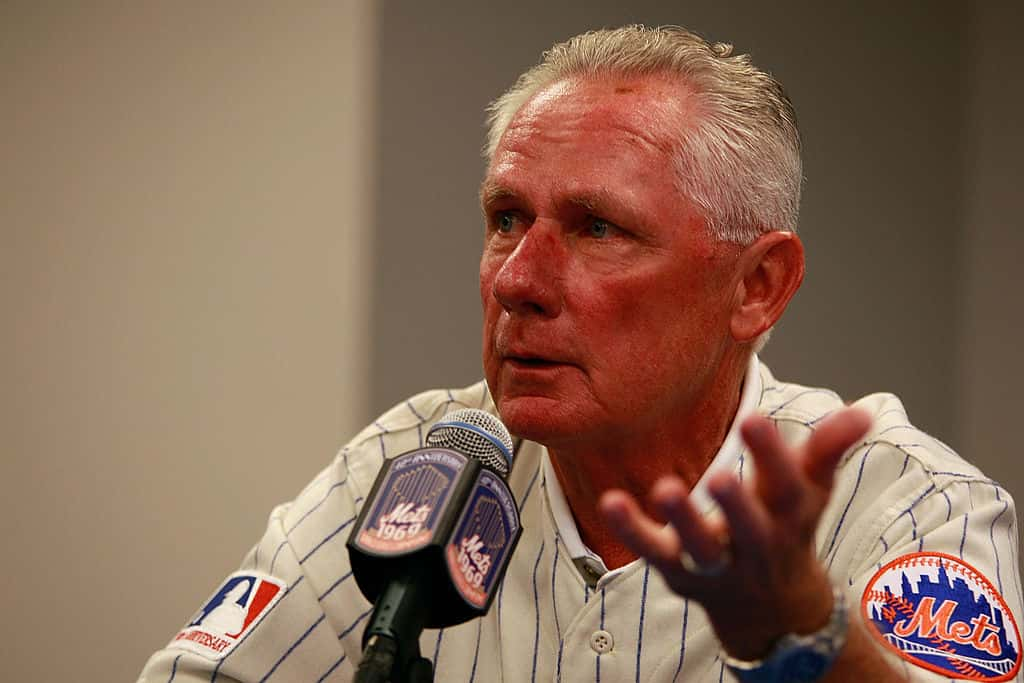 Getty Images
Getty Images
25. Day In, Day Out
In the summer of 1941, Yankees legend Joe Dimaggio took the public on a wild ride when he recorded hits in a whopping 56 straight games, a record that many believe no one will ever break. The only person to have come anywhere near this feat was, you guessed it, Pete Rose. During an impressive 44-game hit streak, Rose sent the baseball world into a frenzy of daily speculation as to whether he might finally break the legendary record.
26. You Are the Father
In 1978, at the height of his baseball stardom, Rose was the subject of a surprise paternity suit claiming he was the father of a baby named Morgan Erin Rubio. This was particularly surprising because Rose was still married to his first wife, Karolyn, at the time. It would take a long time, but Rose eventually confessed to being the father and agreed to a settlement in 1996.
27. Jack of All Trades
Believe it or not, unlike the vast majority of star ballplayers, Rose never permanently settled into any one consistent position on the baseball diamond at any point in his career. In fact, he is the only player in big-league history to have made the All-Star team at five different positions over the years—First Base, Second Base, Third Base, Left Field, and Right Field.
28. Moving On
Not everyone agrees on exactly when the “Big Red Machine” era ended in Cincinnati, but one thing is certain—when Rose shocked the baseball world by announcing he was leaving his lifelong team and had signed a contract with their rivals, the Philadelphia Phillies, every Reds fan knew that the good old days were over.
The Phillies contract made Rose the highest-paid athlete in sports at the time—and he certainly repaid the favor in 1980 when he helped lead them to their first-ever World Series title in their nearly 100-year history.
29. His Majesty
After his time with the Phillies, Rose joined the Montreal Expos. During his first year with them, he became only the second player in Major League Baseball’s long history to have ever recorded more than 4,000 hits. As impressive as that was, it was what happened next that truly secured his place in the game’s history.
Late in the 1984 season, the Expos traded Rose back to his original team, the Reds, after a five-year exodus—and the homecoming went well. On September 11, 1985, Rose recorded the 4,192nd hit of his professional career. With it, Rose surpassed the legendary Ty Cobb’s longstanding all-time record for most hits. The baseball record books had crowned their new all-time Hit King.
30. Letting the Cork Out
As exciting as becoming the new Hit King was, it has not come without its controversies. One such example was the 2010 claim that Rose had cheated by “corking” his bats when he was chasing Cobb’s record—a big no-no in the baseball world. Despite Rose’s denial of these allegations, the collectors who owned the bats he had used in those historic games allowed them to be x-rayed.
Sure enough, the tests concluded that the bats did in fact show signs of corking. Awkward…
31. Take Two
Yet another controversy over Rose’s record ensued when researchers discovered that, contrary to the traditional historical account, Ty Cobb had never actually recorded 4,191 hits. In reality, a 1910 game in which Cobb had two hits had accidentally been counted twice. This means that technically speaking, despite all the fanfare on Rose’s big day, he had actually already broken Cobb’s record three days earlier without anyone realizing.
32. Keeping His Head in the Game
In addition to his famous record as Major League Baseball’s all-time Hit King, Rose also holds another highly impressive record that fewer people are aware of. With a whopping total of 3,562, Rose holds the all-time record for most games played at the big league level. This is yet another testament to the unwavering devotion he always had to the game of baseball.
33. Above Average
All true baseball fans know that .300 is considered the gold standard for batting average. Well, in what the serious fans may consider his most impressive achievement of all, Rose strung together no fewer than 16 seasons with a batting average of .300 or higher over the course of his career.
34. Multitasking
Upon his return to Cincinnati in 1984, Rose earned an unexpected promotion. While remaining a core player in the team’s lineup, the Reds decided that he was also qualified enough to simultaneously serve as the team’s manager. He remained the manager for the rest of his playing career, and continued in the role for another three years after that as well. Rose was the last full-time “player-manager” in the history of Major League Baseball.
35. Getting Physical
Just because Rose retired from playing in 1986 doesn't mean his intensity slowed down even a little bit. In 1988, an umpire’s delayed call allowed a run to score against his team. Furious, manager Rose came barging out of the dugout to argue about it—and things went downhill fast. When Rose physically shoved the umpire during the altercation, he was immediately tossed from the game. The league handed a 30-day suspension for it, the longest for a manager over an on-field incident in baseball history.
36. The Beginning of the End
The public may have always viewed Rose as a controversial guy, but little did they realize, the true controversy had not even yet begun. In early 1989, a shocking report revealed that the league was investigating allegations that Rose had repeatedly bet on his own teams’ games—at wagers of over $10,000 a day.
37. Showing Him the Door
After a long and complicated investigation process, the MLB decided in 1989 that Rose would be permanently banned from baseball. He was the first individual since 1943 to receive this drastic punishment. This also meant that, despite his legendary playing career, the legendary Rose would now be ineligible for the Baseball Hall of Fame. Rose denied the allegations, but ultimately agreed to the terms of the ban.
38. Here Today, Gone Next Week?
Many fans have long objected to Rose’s Hall of Fame ban and continue to fight to this day for the legend to be forgiven. Eerily, supporters of this movement may have some allies among the baseball gods. Bart Giamatti, the MLB Commissioner who instituted Rose’s lifetime ban, died suddenly of a heart attack on September 1, 1989—a mere eight days after announcing his decision.
39. Frenemies
One surprising person who strongly supports the ban against Rose is his former teammate, fellow “Big Red Machine” superstar Johnny Bench. There have long been rumors of drama between these two, but none of it has ever been as public as a recent spat about the Hall of Fame. Bench has long argued that the league must uphold the rules, including the ban, for the sake of the game’s integrity. Finally, in the summer of 2019, Rose finally fired back.
Good old Charlie Hustle claimed in an interview that he was the true source of Bench’s success, and even went so far as to say that Bench “should thank God I was born.” Rose then stated that Bench would never have made it to the Hall of Fame if not for him, despite also admitting that his former teammate was “the greatest catcher of all times.”
40. The Big House
The years following Rose’s ban were not exactly good ones for his public image—and the headlines only got worse from there. In 1990, Rose served five months in federal prison for tax evasion. He had failed to declare income he had earned from selling autographs and betting on horse racing. He also had to pay a $50,000 fine and perform 1,000 hours of community service.
41. Tommy Tells All
In 2001, a blockbuster interview with Tommy Gioiosa, an amateur athlete whom Rose had mentored, brought even more allegations to light. Gioiosa claimed that he had taken the fall for Rose a decade earlier, after his mentor got involved in a drug deal to pay off his gambling debts. Rose has denied the allegations, and even accused Gioiosa of having been paid to invent the story.
42. The Truth Comes Out
In 2004, Rose finally came clean about the gambling allegations. He admitted that he did, in fact, bet on the Reds while he was playing for them and managing them. He added that he had actually bet on his team every single night, but always on them winning. I guess in a sense it gave him some extra motivation to succeed, as if he of all people needed any…
43. Daddy’s Little Girl
Many of you may be surprised to learn that Pete isn’t the only member of the Rose family to become a public figure. The baseball star’s daughter, Cara, is a TV actress who has appeared on shows like Passions and Melrose Place under the stage name “Chea Courtney.” She was born just two days before the MLB decided to ban her dad from baseball.
44. It’s All About Trust
Rose has applied to Major League Baseball for reinstatement several times over the last 30 years, but with no success so far. For example, he submitted a new request to Commissioner Rob Manfred in 2015, only to have it denied. Manfred argued that Rose’s continued habit of gambling on sports would preclude him from being considered trustworthy if allowed back into involvement with the league.
45. Breaking Up Is Hard to Do
Rose and his second wife, Carol, were involved in a messy divorce saga for more than a decade. Although the couple had been separated since 2009 over “irreconcilable differences,” it was only in late 2018, when Rose wanted to remarry once again, that he began pressing the court to finalize the process as quickly as possible.
46. Back to Reality
In the midst of his ugly divorce process with Carol, Rose began dating Playboy model Kiana Kim. He even proposed to her in 2011 (unfinished legal processes aside). Kim, who is 39 years younger than the Hit King, briefly co-starred with him on a short-lived 2013 reality show about the couple’s lives together.
47. Out of Left Field
In the aftermath of the Houston Astros cheating scandal, Rose once again asked Commissioner Manfred to reconsider his lifetime ban in February 2020. This time, he received some vocal support from an unexpected source—the White House. President Donald Trump shocked baseball fans and political analysts alike when, without any context whatsoever, he tweeted in support of Rose’s efforts to get into the Hall of Fame. Now that’s what I call a curveball!
48. Welcome Back
Although Major League Baseball has firmly enforced Rose’s ban for more than three decades, there was one time when they made an exception. In 1999, when fans voted him onto the sport’s “All-Century” dream team roster, the league permitted him to attend and participate in the once in a lifetime ceremony. Rose received an enormous ovation from the audience, reminding us that there are always people out there willing to forgive and forget even the messiest of mistakes.
49. The Past Comes Back to Haunt Him
No matter how much time goes by, Rose just never seems to be too far away from scandal. In 2017, it came out that Rose had slept with a minor back in the 1970s. He even had an ongoing affair with her while still married to his first wife. The scandal resulted in the cancellation of a rare appearance at a Phillies game, where the team was going to honor him on their “Wall of Fame.”
50. From Laughter to Tears
In 2010, Rose held a roast in honor of the 25th anniversary of his record-setting hit. However, it wasn’t the comedic knocks on him that made headlines the next day—it was the fact that Rose broke down and started weeping in the middle of the show. He candidly admitted for the first time that his antics had “disrespected” the game he loves. It was a side of him the public had never seen before, but I guess everyone has their breaking point!
Sources: 1, 2, 3, 4, 5, 6, 7, 8, 9, 10, 11, 12, 13, 14, 15, 16, 17, 18, 19, 20, 21, 22, 23, 24, 25, 26, 27, 28, 29, 30, 31, 32, 33, 34, 35, 36

